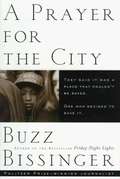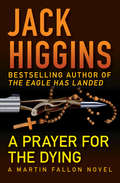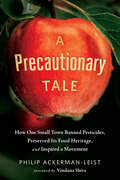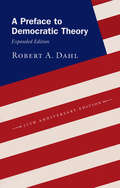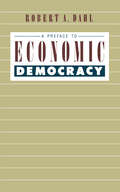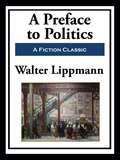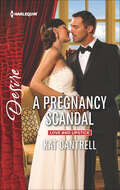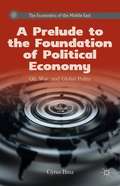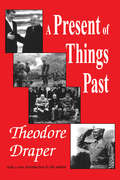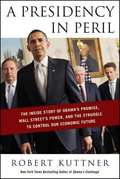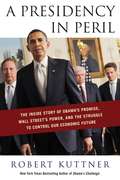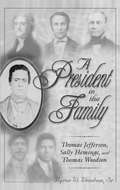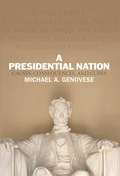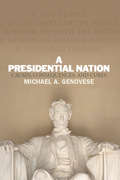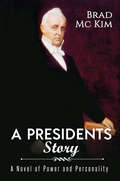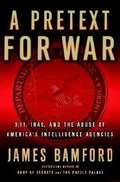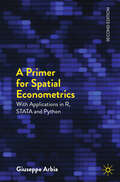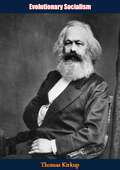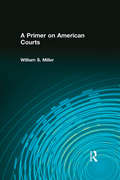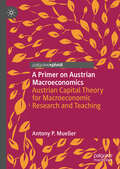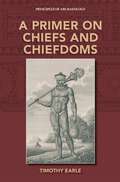- Table View
- List View
A Prayer for the City: The True Story of a Mayor and Five Heroes in a Race Against Time
by Buzz BissingerA Prayer for the City is Pulitzer Prize-winning journalist Buzz Bissinger's true epic of Philadelphia mayor Ed Rendell, an utterly unique, unorthodox, and idiosyncratic leader who will do anything to save his city: take unions head on, personally lobby President Clinton to save 10,000 defense jobs, or wrestle Smiley the Pig on Hot Dog Day--all the while bearing in mind the eternal fickleness of constituents whose favor may hinge on a missed garbage pick-up or an overzealous meter maid. It is also the story of citizens in crisis: a woman fighting ceaselessly to give her great-grandchildren a better life, a father of six who may lose his job at the Navy Shipyard, and a policy analyst whose experiences as a crime victim tempt her to abandon her job and ideals. Heart-wrenching and hilarious, alive with detail and insight, A Prayer for the City describes a city on its knees and the rare combination of political courage and optimism that may be the only hope for America's urban centers.
A Prayer for the Dying (The Martin Fallon Novels #2)
by Jack HigginsAn IRA hit man is on the run and out for redemption in this novel from the New York Times–bestselling author of The Eagle Has Landed and Dark Justice. Martin Fallon has more blood on his hands than any man has a right to. And once upon a time he had no problem with that, killing for his IRA brethren without remorse or regret. But when a mistake leads to the explosion of a school bus full of children, Fallon flees to London to hide with his guilt. His seclusion is broken when he agrees to make one last killing on behalf of the criminal Meehan brothers—and that may be his greatest mistake. For the hit is witnessed by a priest—and now the Meehans want him dead, too. But Fallon has had enough innocent blood. In a desperate struggle for his soul, Fallon must protect the clergyman while fighting not only the ruthless Meehans but also his former IRA comrades who have decided that Fallon himself needs to be silenced. For decades, Jack Higgins has delivered edge-of-the-seat thrills for millions of fans all over the world, and has truly earned his status as &“the master&” of international action and intrigue (Tom Clancy). A Prayer for the Dying is the 2nd book in the Martin Fallon Novels, but you may enjoy reading the series in any order.
A Prayer for the Dying (The Martin Fallon Novels #2)
by Jack HigginsAn IRA hit man is on the run and out for redemption in this novel from the New York Times–bestselling author of The Eagle Has Landed and Dark Justice. Martin Fallon has more blood on his hands than any man has a right to. And once upon a time he had no problem with that, killing for his IRA brethren without remorse or regret. But when a mistake leads to the explosion of a school bus full of children, Fallon flees to London to hide with his guilt. His seclusion is broken when he agrees to make one last killing on behalf of the criminal Meehan brothers—and that may be his greatest mistake. For the hit is witnessed by a priest—and now the Meehans want him dead, too. But Fallon has had enough innocent blood. In a desperate struggle for his soul, Fallon must protect the clergyman while fighting not only the ruthless Meehans but also his former IRA comrades who have decided that Fallon himself needs to be silenced. For decades, Jack Higgins has delivered edge-of-the-seat thrills for millions of fans all over the world, and has truly earned his status as &“the master&” of international action and intrigue (Tom Clancy). A Prayer for the Dying is the 2nd book in the Martin Fallon Novels, but you may enjoy reading the series in any order.
A Precarious Game: The Illusion of Dream Jobs in the Video Game Industry
by Ergin BulutA Precarious Game is an ethnographic examination of video game production. The developers that Ergin Bulut researched for almost three years in a medium-sized studio in the U.S. loved making video games that millions play. Only some, however, can enjoy this dream job, which can be precarious and alienating for many others. That is, the passion of a predominantly white-male labor force relies on material inequalities involving the sacrificial labor of their families, unacknowledged work of precarious testers, and thousands of racialized and gendered workers in the Global South. A Precarious Game explores the politics of doing what one loves. In the context of work, passion and love imply freedom, participation, and choice, but in fact they accelerate self-exploitation and can impose emotional toxicity on other workers by forcing them to work endless hours. Bulut argues that such ludic discourses in the game industry disguise the racialized and gendered inequalities on which a profitable transnational industry thrives. Within capitalism, work is not just an economic matter, and the political nature of employment and love can still be undemocratic even when based on mutual consent. As Bulut demonstrates, rather than considering work simply as a matter of economics based on trade-offs in the workplace, we should consider the question of work and love as one of democracy rooted in politics.
A Precautionary Tale: How One Small Town Banned Pesticides, Preserved Its Food Heritage, and Inspired a Movement
by Philip Ackerman-LeistMals, Italy, has long been known as the breadbasket of the Tyrol. But recently the tiny town became known for something else entirely. A Precautionary Tale tells us why, introducing readers to an unlikely group of activists and a forward-thinking mayor who came together to ban pesticides in Mals by a referendum vote—making it the first place on Earth to accomplish such a feat, and a model for other towns and regions to follow.For hundreds of years, the people of Mals had cherished their traditional foodways and kept their local agriculture organic. Their town had become a mecca for tourists drawn by the alpine landscape, the rural and historic character of the villages, and the fine breads, wines, cheeses, herbs, vegetables, and the other traditional foods they produced. Yet Mals is located high up in the eastern Alps, and the valley below was being steadily overtaken by big apple producers, heavily dependent on pesticides. As Big Apple crept further and further up the region&’s mountainsides, their toxic spray drifted with the valley&’s ever-present winds and began to fall on the farms and fields of Mals—threatening their organic certifications, as well as their health and that of their livestock. The advancing threats gradually motivated a diverse cast of characters to take action—each in their own unique way, and then in concert in an iconic display of direct democracy in action. As Ackerman-Leist recounts their uprising, we meet an organic dairy farmer who decides to speak up when his hay is poisoned by drift; a pediatrician who engaged other medical professionals to protect the soil, water, and air that the health of her patients depends upon; a hairdresser whose salon conversations mobilized the town&’s women in an extraordinarily conceived campaign; and others who together orchestrated one of the rare revolutionary successes of our time and inspired a movement now snaking its way through Europe and the United States.A foreword by Vandana Shiva calls upon others to follow in Mals&’s footsteps.
A Preface to Democratic Theory
by Robert A. Dahl“A Preface to Democratic Theory is well worth the devoted attention of anyone who cares about democracy.” —Political Science QuarterlyThis book by Robert Dahl helped launch democratic theory sixty years ago as a new area of study in political science, and it remains the standard introduction to the field. Exploring problems that had been left unsolved by traditional thought on democracy, Dahl here examines two influential models—the Madisonian, which represents prevailing American doctrine, and its recurring challenger, populist theory—arguing that they do not accurately portray how modern democracies operate. He then constructs a model more consistent with how contemporary democracies actually function, and, in doing so, develops some original views of popular sovereignty and the American constitutional system. For this edition, Dahl has written an extensive new afterword that reevaluates Madisonian theory in light of recent research. And in a new foreword, he reflects back on his influential volume and the ways his views have evolved since he wrote it. For any student or scholar of political science, this new material is an essential update on a gold standard in the evolving field of democratic theory.
A Preface to Economic Democracy (Quantum Books #28)
by Robert A. DahlTocqueville pessimistically predicted that liberty and equality would be incompatible ideas. Robert Dahl, author of the classic A Preface to Democratic Theory, explores this alleged conflict, particularly in modern American society where differences in ownership and control of corporate enterprises create inequalities in resources among Americans that in turn generate inequality among them as citizens.Arguing that Americans have misconceived the relation between democracy, private property, and the economic order, the author contends that we can achieve a society of real democracy and political equality without sacrificing liberty by extending democratic principles into the economic order. Although enterprise control by workers violates many conventional political and ideological assumptions of corporate capitalism as well as of state socialism. Dahl presents an empirically informed and philosophically acute defense of "workplace democracy." He argues, in the light of experiences here and abroad, that an economic system of worker-owned and worker-controlled enterprises could provide a much better foundation for democracy, political equality, and liberty than does our present system of corporate capitalism.
A Preface to Politics
by Walter LippmannThe most incisive comment on politics to day is indifference. When men and women begin to feel that elections and legislatures do not matter very much, that politics is a rather distant and unimportant exercise, the reformer might as well put to himself a few searching doubts. Indifference is a criticism that cuts beneath oppositions and wranglings by calling the political method itself into question. Leaders in public affairs recognize this. They know that no attack is so disastrous as silence, that no invective is so blasting as the wise and indulgent smile of the people who do not care. I have put forward a preliminary sketch for a theory of politics, a preface to thinking. Like all speculation about human affairs, it is the result of a grapple with problems as they appear in the experience of one man. For though a personal vision may at times assume an eloquent and universal language, it is well never to forget that all philosophies are the language of particular men.
A Pregnancy Scandal: A Pregnancy Scandal Redeeming The Billionaire Seal Trapped With The Maverick Millionaire (Love and Lipstick #2)
by Kat CantrellThey married for the sake of the baby. Will they stay together for love? Widowed power player Phillip Edgewood's political ambitions demand he have a wife-they don't demand he love her. It's a good thing, too, because his heart belongs to the perfect wife he lost. But finding a woman who will say "I do" to his deal proves difficult. Until he meets Alexandra Meer-the sexy CFO he can't resist. She doesn't believe in happily-ever-after, even after their amazing night together. And now she's pregnant with his child! A marriage of convenience should end the scandal and solve all their problems...as long as they don't fall in love...
A Prelude to the Foundation of Political Economy
by Cyrus BinaA Prelude to the Foundation of Political Economy is a groundbreaking volume of theory and strategy on political economy and polity of the twenty-first century. Distilled in concrete terms, it elucidates the enigma of oil in view of the centrality of global social relations.
A Present of Things Past: Selected Essays
by Theodore DraperTheodore Draper is one of America's most trenchant and informed critics. A Present of Things Past gathers together ten of his most recent and most powerful selected essays, in which Draper, with his customary acuity and wit, tackles a host of issues that define America's political culture. A Present of Things Past is concerned with a reexamination of the Second World War in both its military and its political aspects; the trajectory of American conservatism as it manifested itself during the Reagan years; the rise of Gorbachev and the history of "reform" in the Soviet Union; the revisionist debate over the origins and history of American communism; and the persistent mystery of a man named Max Eitingon, who was, depending on one's reading of the sources, either an important figure in the history of psychoanalysis or an agent of the Soviet secret police, or both. In "American Hubris," Draper illuminates the assumptions that have guided American foreign policy in the postwar period, and concludes that our costly misadventures--in Korea, Vietnam, Lebanon, and elsewhere--cannot be considered a string of aberrations. They were, he argues, a consequence of the Truman Doctrine. In "Reagan's Junta," Draper observes: "This is supposed to have been the era of the imperial presidency. It has turned out to be the era of presidencies that have tried to make themselves imperial-and failed." Throughout these compelling essays, Draper demonstrates the uses and abuses to which history has been put by ideologues of both the left and the right. He finds unacceptable, for example, the practice of many journalists of fictionalizing their sources. The New York Times has called Draper "one of the clearer-eyed observers of the issues that torment us." A Present of Things Past enhances that reputation.
A Presidency in Peril
by Robert KuttnerAs with many progressives who had pinned their hopes on the promise of Barack Obama, Kuttner (co-editor of The American Prospect magazine) has become disappointed with President Obama's failure to deliver transformational change in the realm of US economic policy. He delivers a work of reportage, analysis, and critique that seeks to understand the reasons for Obama's basic acquiescence to the priorities of Wall Street over those of Main Street and his failure to push for strong financial regulation in the face of economic crisis. Although he is critical of Obama's economic performance in the first two years, he holds out hope that the President may yet salvage his legacy and offers advice on how Obama could go about redeeming his presidency. Annotation ©2010 Book News, Inc. , Portland, OR (booknews. com)
A Presidency in Peril: The Inside Story of Obama's Promise, Wall Street's Power, and the Struggle to Control Our Economic Future
by Robert KuttnerAs with many progressives who had pinned their hopes on the promise of Barack Obama, Kuttner (co-editor of The American Prospect magazine) has become disappointed with President Obama's failure to deliver transformational change in the realm of US economic policy. He delivers a work of reportage, analysis, and critique that seeks to understand the reasons for Obama's basic acquiescence to the priorities of Wall Street over those of Main Street and his failure to push for strong financial regulation in the face of economic crisis. Although he is critical of Obama's economic performance in the first two years, he holds out hope that the President may yet salvage his legacy and offers advice on how Obama could go about redeeming his presidency. Annotation ©2010 Book News, Inc. , Portland, OR (booknews. com)
A President in the Family: Thomas Jefferson, Sally Hemings, and Thomas Woodson
by Byron W. WoodsonThe author, a 6th generation descendant of Jefferson, details the quest to corroborate family lore, locate missing family members, and reveal the truth about life at Monticello.
A Presidential Nation
by Michael A. GenoveseThe Washington Monument, the Lincoln Memorial, the Jefferson Memorial. Why do we devote monuments to the presidents? Why do we honor them, instead of Congress, or the courts?A Presidential Nationexamines how the presidency-an office limited by the Constitution and separation of powers-became the centerpiece of American government. Michael A. Genovese argues that in rebelling against the British, the Framers of the Constitution invented a circumscribed presidency to guard against executive tyranny. Yet, over time, presidential power has risen and congressional power declined to a point where the United States has a near imperial presidency. Reexamining the status of presidential power in the post-9/11 world, Dr. Genovese considers the alternatives, if any, to the current model of presidential power. A Presidential Nationis perfect for students of American Presidency and Federal Governance courses and anyone interested in the changing authority of the American political system.
A Presidential Nation
by Michael A. GenoveseThe Washington Monument, the Lincoln Memorial, the Jefferson Memorial. Why do we devote monuments to the presidents? Why do we honor them, instead of Congress, or the courts? A Presidential Nation examines how the presidency--an office limited by the Constitution and separation of powers--became the centerpiece of American government. Michael A. Genovese argues that in rebelling against the British, the Framers of the Constitution invented a circumscribed presidency to guard against executive tyranny. Yet, over time, presidential power has risen and congressional power declined to a point where the United States has a near imperial presidency. Reexamining the status of presidential power in the post-9/11 world, Dr. Genovese considers the alternatives, if any, to the current model of presidential power. A Presidential Nation is perfect for students of American Presidency and Federal Governance courses and anyone interested in the changing authority of the American political system.
A Presidential Nation
by Michael A. GenoveseThe Washington Monument, the Lincoln Memorial, the Jefferson Memorial. Why do we devote monuments to the presidents? Why do we honor them, instead of Congress, or the courts? A Presidential Nation examines how the presidency--an office limited by the Constitution and separation of powers--became the centerpiece of American government. Michael A. Genovese argues that in rebelling against the British, the Framers of the Constitution invented a circumscribed presidency to guard against executive tyranny. Yet, over time, presidential power has risen and congressional power declined to a point where the United States has a near imperial presidency. Reexamining the status of presidential power in the post-9/11 world, Dr. Genovese considers the alternatives, if any, to the current model of presidential power. A Presidential Nation is perfect for students of American Presidency and Federal Governance courses and anyone interested in the changing authority of the American political system.
A Presidential Nation: Causes, Consequences, and Cures
by Michael A. GenoveseThe Washington Monument, the Lincoln Memorial, the Jefferson Memorial. Why do we devote monuments to the presidents? Why do we honor them, instead of Congress, or the courts? A Presidential Nation examines how the presidency?an office limited by the Constitution and separation of powers?became the centerpiece of American government. Michael A. Genovese argues that in rebelling against the British, the Framers of the Constitution invented a circumscribed presidency to guard against executive tyranny. Yet, over time, presidential power has risen and congressional power declined to a point where the United States has a near imperial presidency. Reexamining the status of presidential power in the post-9/11 world, Dr. Genovese considers the alternatives, if any, to the current model of presidential power. A Presidential Nation is perfect for students of American Presidency and Federal Governance courses and anyone interested in the changing authority of the American political system.
A Presidents Story
by Brad McKimAt the dawn of the 19th century, fourteen men will succeed George Washington in leading the young United States. As their personal tales intertwine and overlap with one another on their way to the Presidency, they craft an election system that is, at once, chaotic and orderly. Their ambition forces them to join political parties even as those parties’ agendas are not always clear. Their supporters engage in ever more vicious public and private campaigns. They rely on political favors and a partisan press to win votes and to solicit compromise. And yet, they follow Washington’s example and hand over power after each election to the newest victor, typically with unprecedented grace and humility. These are the practices that survive, even as a Civil War looms that threatens to destroy virtually everything else about the young country.
A Pretext for War: 9/11, Iraq, and the Abuse of America's Intelligence Agencies
by James BamfordInA Pretext for War, acclaimed author James Bamford-whose classic bookThe Puzzle Palacefirst revealed the existence of the National Security Agency-draws on his unparalleled access to top intelligence sources to produce a devastating expose of the intelligence community and the Bush administration. A Pretext for War reveals the systematic weaknesses behind the failure to detect or prevent the 9/11 attacks, and details the Bush administration's subsequent misuse of intelligence to sell preemptive war to the American people. Filled with unprecedented new revelations, from the sites of "undisclosed locations" to the actual sources of America's Middle East policy, A Pretext for War is essential reading for anyone concerned about the security of the United States.
A Primer for Spatial Econometrics: With Applications in R, STATA and Python (Palgrave Texts in Econometrics)
by Giuseppe ArbiaThis textbook offers a practical and engaging introduction to spatial econometric modelling, detailing the key models, methodologies and tools required to successfully apply a spatial approach. The second edition contains new methodological developments, new references and new software routines in R that have emerged since the first edition published in 2014. It also extends practical applications with the use of the software STATA and of the programming language Python. The first software is used increasingly by many economists, applied econometricians and social scientists while the software Python is becoming the elective choice in many scientific applications. With new statistical appendices in R, STATA and Python, as well as worked examples, learning questions, exercises and technical definitions, this is a significantly expanded second edition that will be a valuable resource for advanced students of econometrics.
A Primer of Socialism
by Thomas KirkupThis book is a concise and authoritative introduction to the principles, history, and prospects of socialism, written by one of the leading British economists and statisticians of the early 20th century. Kirkup explains the key concepts and debates of socialist theory and practice, from utopian visions to scientific socialism, from cooperatives to nationalization, from Marx to Bernstein. The book is a lucid and engaging guide to one of the most influential and controversial movements in modern politics and society.-Print ed.
A Primer on American Courts
by William MillerThis brief, accessible, and inexpensive supplement on American courts and their functions provides undergraduate, or first-year law students, with an understanding of the key substantive and procedural concepts that they need to know to study the law or the judicial process. Recognizing that there are many substantive and procedural concepts about American courts that students must first grasp in order to study the law or the judicial process, this brief text answers important questions about justiciability, standing, jurisdiction, and judicial power. With a stronger historical context, this text is a perfect complement to a text on Constitutional Law, Judicial Process, or a legal casebook, and will help students master the legal vocabulary with which they are confronted.
A Primer on Austrian Macroeconomics: Austrian Capital Theory for Macroeconomic Research and Teaching (Palgrave Studies in Austrian Economics)
by Antony P. MuellerThis book offers an accessible framework for macroeconomic modelling rooted in the capital theory of Austrian Economics. By distinguishing between the goods and monetary sides of the economy and exploring their interaction, the book provides a comprehensive macroeconomic model that integrates time preference and interest rates. It examines how monetary and fiscal policies can produce business cycles and how these cycles are influenced by central bank liquidity and financial market behaviour. Additionally, the book discusses the ways in which monetary and fiscal policies can prolong and intensify economic stagnation. Through its clear exposition, this book deepens the understanding of the conditions that determine the unsustainability of credit-driven economic expansions. It is essential reading for students and researchers in political economy, macroeconomics, monetary economics, and those interested in advancing Austrian Economics.
A Primer on Chiefs and Chiefdoms (Principles of Archaeology)
by Timothy EarleChiefs are political operatives who hold titles of leadership over groups larger than intimate kin-based communities. Although they rule with the consent of their group, they are all about building personal power and respect. Many scholars have viewed chiefs as problem solvers--defending groups against aggressors, resolving disputes, providing support under hardship, organizing labor for community projects, and redistributing goods among those in need. Chiefs do these things, but much of what chiefs do is accumulate benefits for themselves, staying in power and legitimizing control. Anthropological archaeology is well suited to pursue the study of chiefs, their leadership institutions (chiefdoms), and long-term historical processes. The author argues that studying chiefdoms is essential to understanding the role of elemental powers in social evolution. As an illustration, he studies chiefs and their power strategies in historically independent prehistoric and traditional societies and discusses how they continue to exist as powerful actors within modern states.
